The PG smelled faintly of frying pakoras and damp detergent that evening. Meera had been at her desk since five, combing through a battered copy of A Room of One’s Own, trying to decide whether she could survive the college freshers’ party without appearing awkward. Priya, already in her sequined kurti and salwar, was leaning into the mirror tacking on an earring.
“Don’t tell me you’re going to skip this one too,” Priya said, one eyebrow raised. “It’s not a wedding, yaar. Just show up, stand in a corner, drink Frooti, and leave.”
Meera laughed softly. “You make it sound so easy.” She closed her book and began gathering her things — a sling bag, a light shawl. The walk from Nehru Enclave to college would be shorter in the cooler evening air, and she welcomed the time to steady herself.
“Come on,” Priya said, as she applied some kajal and eyeliner on Meera’s eyes. “We can’t go to the Freshers’ Night looking like we’ve just crawled out of the library.”
Meera laughed softly, tucking a curl behind her ear. “We practically have.”
In the mirror by the door she caught her own reflection: shoulder-length curls with natural brown streaks, a simple cotton kurti the colour of pale rain. Priya had chosen a deep maroon salwar and tiny gold jhumkas; the contrast between them always amused Meera—Priya loud and decisive, Meera quiet and deliberate.
The campus looked different under fairy lights. The usually serious red-brick walls of Ramanujan seemed to soften, glimmering with strings of yellow bulbs that zigzagged across the courtyard. Music echoed faintly from loudspeakers near the stage, a jumble of Bollywood hits and English pop, while students in fresh kurtas and dresses milled about in clumps.
They joined a small stream of students on the pavement. The monsoon had left the street pitted with puddles that reflected neon shop boards. Sana caught up to them near the gate, her dupatta flying. “Finally! Both of you look like characters out of a novel,” she said, twirling once before falling in step.
The college hall had been transformed with strings of marigold lights and posters painted by the Fine Arts Club. Music pulsed softly from a borrowed speaker. Seniors floated about in casual kurtas and sneakers, handing out name tags and cups of juice. The scent of perfume and warm samosas mingled in the air.
Meera instinctively looked for a corner to stand in. She spotted one near a bulletin board and was making her way there when she heard a familiar voice.
Ayan crossed the room in unhurried strides. “Good evening, Meera,” he said, his voice carrying over the music without effort. “I was hoping you’d come.”
She gave him a polite nod. “Freshers are supposed to, aren’t they?”
He smiled at that — not a triumphant smile, just a quiet one, as though he was pleased she’d sparred back. “Fair enough. Priya, Sana.” He greeted them too, his manners precise. “I’m supposed to photograph the evening for the college page. Would you mind a picture? Just the three of you.”
Before she could refuse, Priya had already arranged them under a string of lights. Ayan crouched slightly to frame the shot, the camera clicking. In the viewfinder she caught a glimpse of herself — cheeks flushed from the heat, curls haloing her face, eyes wide. She didn’t recognise that version of herself.
As the evening unfolded, she found herself pulled into games and recitals. Someone started a round of antakshari; Sana’s voice rose clear and sweet. Priya dragged Meera onto the makeshift stage for a “Two Truths and a Lie” session. Ayan hovered nearby, capturing candid moments but always circling back toward her orbit like a quiet tide. He brought her a paper plate of jalebis without asking, left it on the table, and walked away before she could protest.
They moved to a quieter side of the hall, near an open window. The evening breeze carried in the smell of rain-wet earth. Meera felt the weight of eyes on them — a couple of juniors whispering, a senior smirking. The stories about the “handsome senior and the quiet literature girl” had already begun to swirl, she could tell. But she ignored it for the moment, deciding to think about it in a bit.
“My ideal weekend?” she said, keeping her tone light. “Cooking something new. Reading. Maybe a walk if it isn’t too hot.”
“Mine’s similar,” he replied. “Minus the cooking, but I’d like to learn. Reading, long walks, maybe some bad poetry writing thrown in.” He tilted his head. “Strangest book?”
She smiled despite herself. “Probably The Metamorphosis. A man turning into an insect — but somehow it makes sense.”
“Good choice. Mine’s a tie between Midnight’s Children and a weird self-published sci-fi I found at Daryaganj market.” He mimed an explosion with his hands. She laughed, and the sound surprised her; it was easier to talk to him than she’d admitted.
A senior announced karaoke. The crowd surged toward the front. Priya reappeared, eyes dancing. “They’re calling volunteers!” she hissed. “Meera, go sing Tagore!”
Meera shook her head violently, but Priya had already shoved her forward. She found herself on stage with a microphone, the bright lights making her blink. Ayan stood near the foot of the stage, clapping encouragement, and somehow that steadied her. She sang a soft Bengali folk tune, voice trembling at first then warming. When she ended, the hall erupted in cheers.
By the time she came down, cheeks flushed, Priya had disappeared into the dancing crowd. Ayan offered her a napkin. “You were beautiful,” he said, simple and earnest.
“You shouldn’t say things like that,” she murmured, wiping her palms. “People already talk too much.”
“Let them,” he said with a shrug. “I’m not ashamed of liking someone’s voice. Or someone’s company.”
She looked away toward the open window, heart thudding. Outside, the rain had started again, soft and steady, dimming the streetlamps. The hall smelled of wet marigolds and fried snacks. She felt exposed, noticed, and yet a tiny warmth bloomed somewhere in her chest.
Before she could reply, someone from the front row shouted, “Ayan bhaiya! Come sing something!”
The crowd picked up the chant, and Rahul joined in with a mock bow. Ayan groaned, then stood, brushing invisible dust off his jeans.
When he reached the stage, the microphone seemed made for him. He didn’t sing dramatically, just an old Hindi film song, simple and unadorned. His voice was low and steady, carrying easily through the warm night air.
And when he sang the refrain, his eyes scanned the crowd and found her.
Meera’s stomach tightened. She looked away immediately, staring hard at the fairy lights wound around the nearest tree. But the flutter of whispers around her confirmed what she already knew — people had noticed where his gaze had landed.
By the time he returned to his seat, she could feel the weight of stares. Priya had reappeared with two plastic cups of juice, grinning like she’d just watched the first act of a play.
“That was cruel,” Meera muttered.
“What?” Ayan asked innocently, sipping his juice.
“Don’t look at me like that. People will… talk.”
“They always do,” he said with a smile that wasn’t quite a smile.
“But you are giving them a reason.” Meera replied softly, reproachful.
“Let them talk,” he said softly. “They’ll find something else by next week.”
Her breath caught, but before she could respond, the hosts announced the final performance of the evening. The crowd cheered, attention shifting away. Meera leaned back in her chair, letting the music drown her thoughts.
Ayan leaned against the wall at a respectful distance.
“That’s easy for you to say,” she replied, keeping her gaze on the rain-darkened campus. “You’re tall and confident and everyone likes you. I’m just… me.”
He tilted his head, studying her. “And what’s wrong with ‘just you’?”
She didn’t answer. Somewhere inside, Priya shouted her name. Meera straightened, gathering her bag. “I should go.”
He didn’t block her way, didn’t offer to walk her — and yet as she stepped back in she felt his presence at her shoulder.
By nine, the room was louder, the air warm with perfume and damp cotton. Students swayed to a Bollywood remix. Meera escaped to the corridor for a breath of cooler air. Outside, the drizzle had started again, beads of water clinging to the iron railing.
“Too noisy?” His voice came from behind her.
She turned, startled. “I just needed a minute,” she said. “I’m not used to… all this.”
“Crowds?” he asked.
“Being looked at,” she corrected, surprising herself with the honesty. The hum of the party spilled out through the open door; she could feel dozens of eyes still on her, whispering about the senior and the girl from Nehru Enclave. It made her skin itch.
Priya called her, it was time to go back to the PG. Ayan walked beside her, accompanying her to the college gates where Priya was waiting for her. Meera turned and looked at him before leaving for the night.
“You don’t have to do this,” she said, voice firmer. “Whatever this is. I came here to study. I don’t want… complications.”
“I’m not here to complicate things,” he said quietly. “I’m here to know you. That’s all.”
The streetlight flickered, rain pooling around his shoes. Meera clutched her dupatta tighter. “Goodnight, Ayan.”
“Goodnight, Meera,” he answered, as if her name were a promise.
He smiled, stepped back, and let her go ahead. Behind her, she heard Rahul calling his name.
She and Priya walked back toward Nehru Enclave, the air smelled of wet earth.
But the image stayed with her: his voice carrying through the courtyard, the way his gaze had found her in a crowd.
And the unsettling truth that, even though she didn’t want it, she had felt noticed.
In the puddle-strewn streetlight Meera saw their reflections: her small, hurried figure and his taller one lingering, blurred by rain — like two lines of ink running on a wet page.

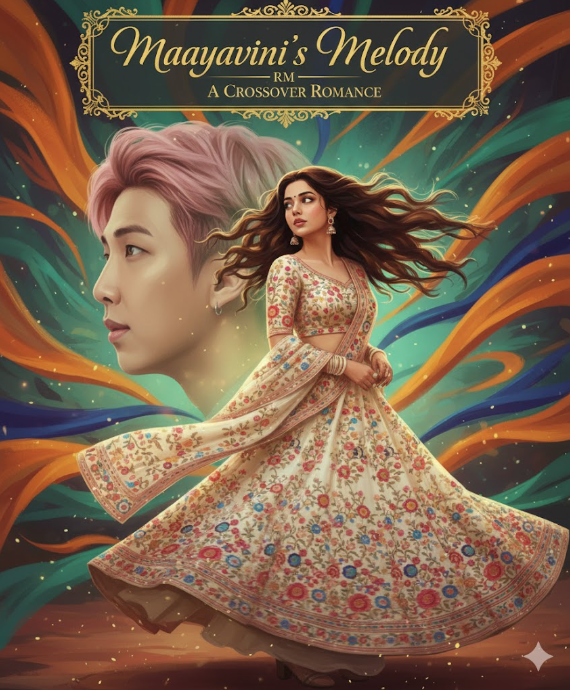
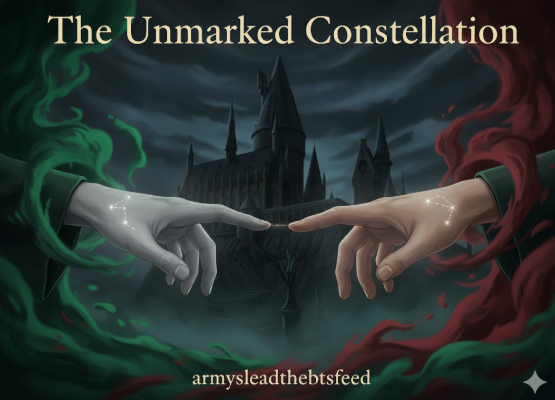
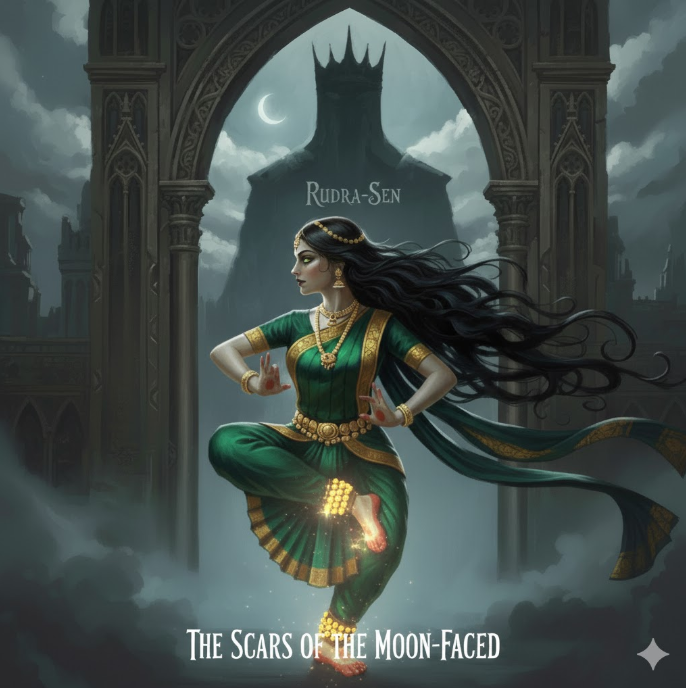
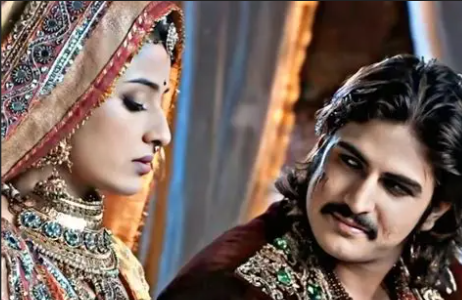
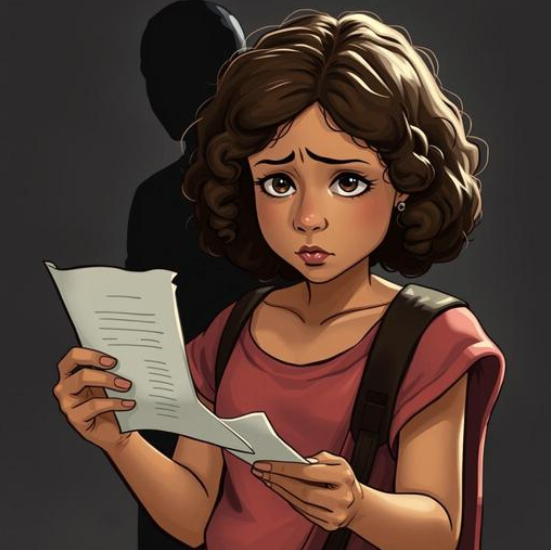
Write a comment ...